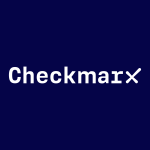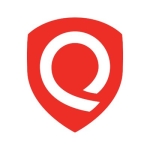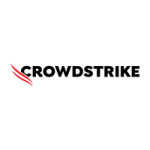What is our primary use case?
We were using it for remediation. I was working on a client's project on behalf of our company, and they had multiple subscriptions. They were using not only Azure but also AWS. Rather than managing remediation and governance separately through different clouds, it was proposed to use Prisma Cloud as a single place for remediation of everything.
How has it helped my organization?
Prisma Cloud provided a single window for all security issues, irrespective of the subscription, account, or service provider I was trying to see. The information was totally transparent with Prisma Cloud. Otherwise, it was a daunting task for us to manage everything within AWS itself because each region's or subaccount's data needed to be moved over to another account to see a full picture, and a similar approach was required in Azure as well. The data from a different subscription needed to be copied, which required a batch process to do this job on a daily basis. By integrating AWS and Azure subscriptions with Prisma Cloud, the same task became easier. It was as simple as adding a new account and a credential. That was it. Prisma Cloud took care of the rest of the functions
Prisma Cloud provided security spanning multi-cloud and hybrid-cloud environments. We integrated it with AWS and Azure with multiple subscriptions for each.
With both AWS and Azure, the presentation of the native cloud data was not good. We were more comfortable looking at the same data in Prisma Cloud.
Automation is possible with Prisma Cloud, and that is why we liked it. Automation is still not that good in the native clouds, and Prisma Cloud definitely has an edge compared to the facility that AWS or Azure provides. Although it is an additional cost for IT, overall, there are cost savings. I am not aware of the features provided by GCP. I did not integrate it with Prisma Cloud, but at least with AWS and Azure, Prisma Cloud works much better.
Prisma Cloud provides an agent that can scan container images or Docker images. Otherwise, for Docker images and accounts, AWS provides its own tool and its own format for the report. Similarly, Azure provides its own format to scan those images. We used the agent provided by Prisma Cloud. It unified the approach. Irrespective of the provider, the format of the output and reports was similar. It was easy to compare apples to apples rather than comparing apples to oranges, which definitely is a challenge when we use different cloud providers. Prisma Cloud solved that problem for us.
The level of abstraction is sufficient enough. The complexity is hidden. Only the information that is relevant is displayed, which is better from a developer's perspective because developers do not need to handle that complexity. If architects, like me, need to understand those complexities, they can go into a respective subscription and get the details. The level of abstraction was good enough with Prisma Cloud.
Prisma Cloud provides a single tool to protect all of our cloud resources and applications, without having to manage and reconcile disparate security and compliance reports.
Prisma Cloud reduced the alert investigation time because now, we have a single window. It is quite easy for anyone. A single resource can work on the alerts and memorize similar issues in the past and work on the current issues faster. It has improved productivity.
Prisma Cloud reduced costs. With the different service providers and different subscription models that we had previously, we divided the subscriptions between the analysts. They were responsible for the issues related to the subscription. We had a team of six people previously. After the implementation of Prisma Cloud, all the issues got consolidated, and our team size got reduced to two. The productivity increased because the same analyst could see past issues, revisit those issues, learn quickly, and fix similar issues. They got an idea of how to fix a similar issue, so the overall productivity increased, which reduced the cost.
What is most valuable?
When we work on, for example, AWS, we need to consolidate the data from different regions, which is an exercise in itself. The same exercise or similar exercise can easily be done in Prisma Cloud. It is as easy as registering a new subscription to AWS, and you start seeing all that data. For example, it is very easy to do analysis of the Defender data, which can include warnings, errors, etc. Although it is natively AWS data, the presentation is not easy for a developer. Prisma Cloud makes it a bit easier.
What needs improvement?
The first time I looked at Prisma Cloud, it took me a while to understand how to implement the integration and how to enable features by using the interface for integration. That portion can probably be improved. I have not looked at the latest version. I used the version that was available three months back. It is portal-based, and they might have changed it in the last three months, but at that time, integration was a bit tricky. Even though documentation was available, it took a while for a new person to understand what integration meant, what will be achieved after the integration, or how the integration needed to be done on the Azure or AWS side. That was a bit challenging initially.
For how long have I used the solution?
I used it for eight or nine months. I last used it about three months ago.
What do I think about the stability of the solution?
How are customer service and support?
The client's team interacted with the customer support team. We used to highlight the issue to them, and they used to contact Palo Alto's support. We required their support two or three times, but I or my team was not directly involved with their customer support for help.
How would you rate customer service and support?
Which solution did I use previously and why did I switch?
I have not used a similar solution before.
How was the initial setup?
I was involved in the implementation. It was all cloud-based. There is a bit of a learning curve when trying to understand how to integrate it. Although some good documentation is available for Prisma Cloud, it was still a bit difficult to understand the product initially. However, the UI that analysts use to work on issues and remediation is quite good. It is not complex. After you have done one or two integrations with your AWS or Azure account or subscription, it becomes a routine activity. It is easy to integrate more subscriptions, but the initial one or two subscriptions of the AWS or Azure account will take some time because some features need to be enabled on the respective cloud as well. It is not only the configuration on the Prisma Cloud side. Some configuration is required on the AWS or Azure side as well.
It is a website, so deployment is not a challenge. It is as simple as registering an account and making the payment, which the IT team already did before they created an account for us, so, as such, there is no deployment. If we want to use an agent, then certainly some deployments are required on the machines, but that is the agent deployment. The product itself does not require any deployment.
From a maintenance perspective, not much maintenance is required. It is a one-time integration. It will then be set for a few years unless you want to remove some of the subscriptions or something changes in Azure or AWS. There is a limitation on the Azure or AWS side but not on the Prisma side, so maintenance is there, but it is low.
What was our ROI?
There was a cost reduction. That was the benefit that we had visualized while evaluating Prisma Cloud as one of the possible solutions. The complexity of IT operations had also reduced, and the team size had also reduced after implementing Prisma Cloud.
What's my experience with pricing, setup cost, and licensing?
We used the enterprise edition. A standard edition is also there. I am aware of these two editions. I know that there is some cost, but I do not have the exact figures with me. The cost was not on the higher side. Overall, the cost gets recovered with its implementation.
What other advice do I have?
I have not compared it with other tools, but overall, I found it to be pretty good when resolving the challenges that we were facing early on. I did not get a chance to look at the Gartner report in terms of where it stands, but based on my experience with this solution, I was quite satisfied.
It is a good solution. Each team should utilize it. Every good organization is now moving towards or trying to be provider agnostic, so if you are using multiple providers, you should at least give Prisma Cloud a try.
Prisma Cloud enables you to integrate security into your CI/CD pipeline and add touchpoints into existing DevOps processes. I know it is possible, but we were already using some other tools, so we did not try this feature. We already had a good process utilizing other scanning tools, so we did not try that feature, but I know that they have this feature.
Prisma Cloud provides risk clarity at runtime and across the entire pipeline, showing issues as they are discovered during the build phases, but this is linked to the CI/CD pipeline, which we did not implement. We looked at the risk level of the infrastructure deployed. We also looked at which cloud platform is having issues. The risk-level clarity was certainly there. It was possible to see the risk level and prioritize the activities or other items with a higher risk, but we never tried CI/CD pipelines.
Overall, I would rate Prisma Cloud a nine out of ten.
Disclosure: PeerSpot contacted the reviewer to collect the review and to validate authenticity. The reviewer was referred by the vendor, but the review is not subject to editing or approval by the vendor.
















